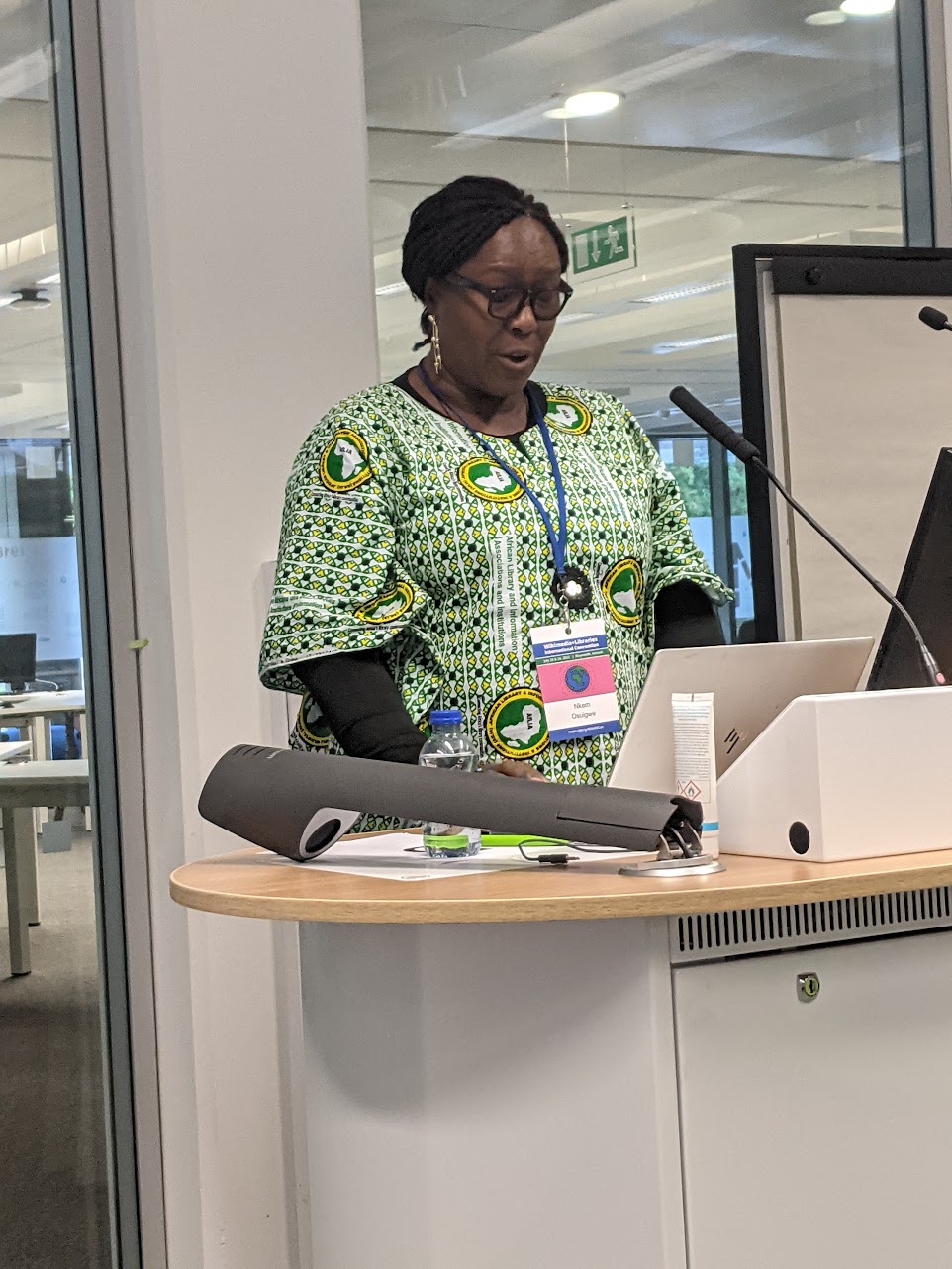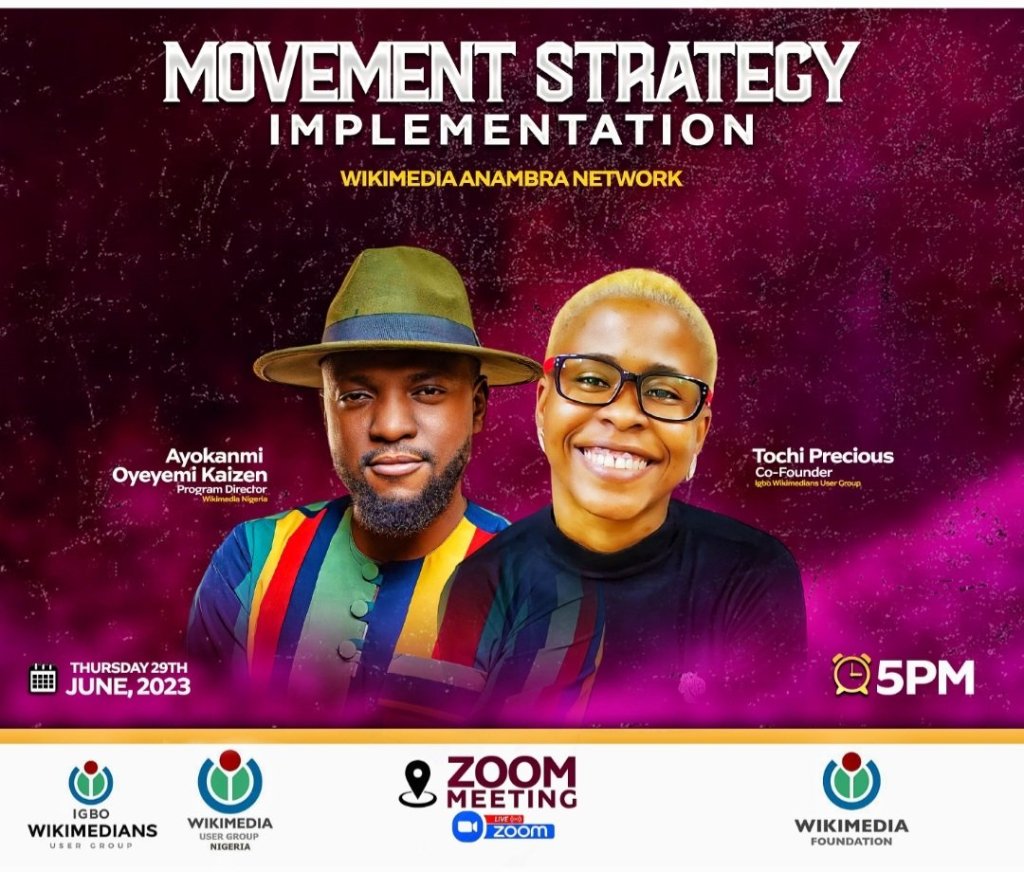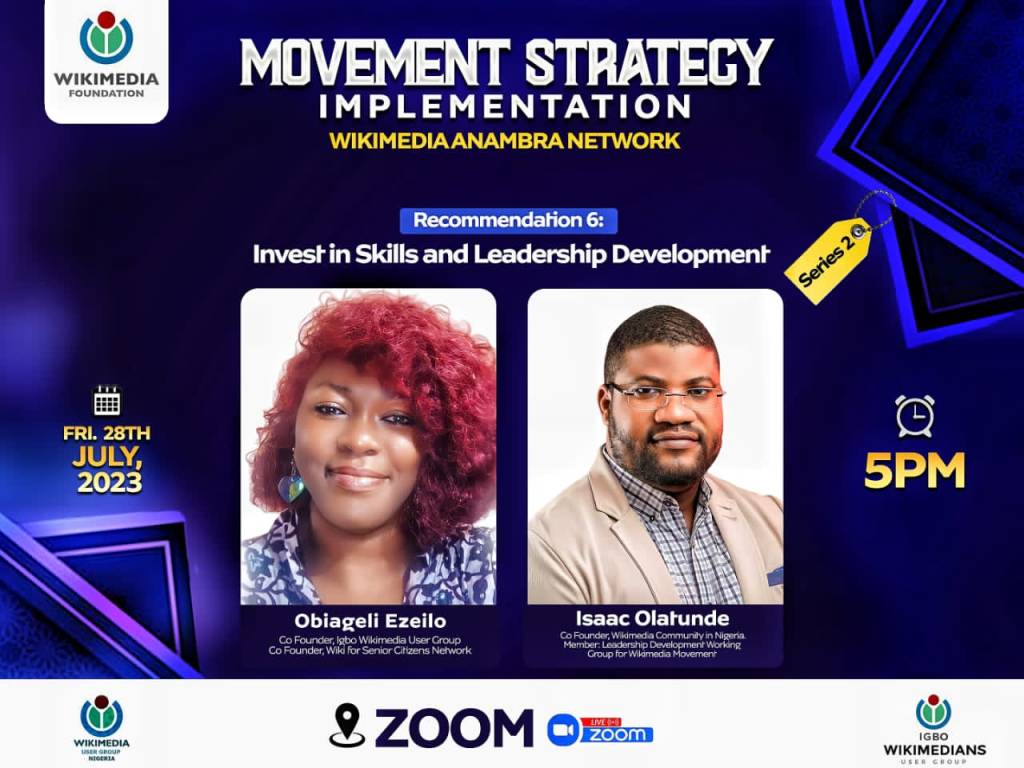
Nkem Osuigwe (Ph.D), Librarian and the Wikimedian of the Year Award 2022 (Newcomer Category)
When I opened an account on Wikipedia in 2019, I had no idea how things worked. I did not do any editing until 2020, when, through the African Librarians Week as part of the May 1Lib1Ref campaign, many African librarians learned how to edit Wikipedia.
I was named the Wikimedian of the Year Award (Newcomer Category) because of the work I did in bringing in and mobilising the African Library sector to be a part of the Wikimedia Movement. My organisation is African.
The Library and Information Association and Institutions (AfLIA) has gone on to run Wikipedia in the African Libraries course, which is an adaptation of the OCLC Wikipedia + Libraries: Better Together with a course on Wikidata for the visibility of knowledge resources in African libraries, archives, and museums.
In all these, I did not hear about the Movement Strategy until I met and had conversations with Yop at the Wiki Indaba Conference in Kigali (November, 2022). I read about the Strategy but did not fully understand how the implementation would happen until the Anambra Network of the Wikimedia User Group, Nigeria, ran a programme on it.

I was the moderator in the first panel discussion, with Ayokanmi Oyeyemi and Tochi Precious as the panelists. I asked questions as pertains to what the Movement Strategy is, what the 2030 Mandate means, what the recommendations are, and how the volunteers could integrate all that into their activities.
It was an illuminating experience, as that was the first time it dawned on many of us that the Strategy is the framework and the direction for moving the Wikimedia Movement forward if we are to play definite roles in achieving the overarching and ambitious goal of making Wikimedia projects the infrastructure for the free knowledge ecosystem, which everyone with the same vision can join!
The idea of leadership as a position and as a function came from Oby Ozeilo.
Isaac Olatunde, a member of the Leadership Development Working Group, took his time to explain why everyone could be a leader, notwithstanding if you have a position, a function, or an action to take within the User Group or the Movement.
He said anyone could be a leader. He spoke of those who have technical skills that may be needed as well as those who ‘direct’ activities in the User group, network, or hub. He was quite emphatic about the difference between management and leadership.
At that point, I became hooked. He spoke on the qualities of leadership and mentioned resilience, integrity, empathy, selflessness, accountability, and the ability to inspire others. The panellists were asked who needs these leadership qualities most in the User group—the officers or everyone? Isaac said anyone who wants to be a leader in his or her corner needs to bring those qualities to the table, irrespective of whether they are a manager or just a member. He went on to say that leadership becomes complex when one is a member of a group such as the Wikimedia Movement because of the diversities within the Movement. Oby also shared the same view.
That struck a chord! I chewed it over and over again. Does it mean that though I do not hold a management post or role in the User group, I can do things as a leader? Is it possible? I had major decisions to make!
My mother had most recently developed a health challenge, and I was managing it to see how she could be stabilised so that I could go to Wikimania 2023 on a full scholarship. I knew there was a long line of people waiting for the scholarship. Empathy and selflessness meant taking the painful decision to let someone else take up the scholarship as quickly as possible instead of waiting until August 12th or 13th before telling the Wikimedia Foundation.

I weighed it. Leadership is not a position but one’s understanding and actions that can be taken to inspire others to move towards achieving a stated goal, as Isaac said. Nigeria is the most populous black country in the world, and sometimes the inadequate infrastructure and social service safety net make us not understand and practise sharing very easily. However, sharing is ingrained in the DNA of Wikimedians, as espoused by Isaac, as it is the paramount thing that we do as we open up knowledge and engage in collaborative contributions. If hoarding is an anti-Wikimedia Movement, then.
Phew!
Tough! Tough!! Tough!!!
I wrote the letter and declined the scholarship the next day after the Movement Strategy discussion, on July 29, 2023, and asked that it be offered to someone else so that the opportunity would not be wasted, whether my mother’s health improved or not.
Phew!
Also, I remembered that I had applied for a scholarship to WikiIndaba (long before the Wikimania scholarship came!). I know that most of the volunteers in the Wikimedia Movement in Africa are young people, and they really need the scholarship to be at the WikiIndaba in Morocco. Again, I remembered empathy as one of the leadership qualities that Isaac and Oby had hammered on as an integral part of sharing. I weighed it against my financial capacity as an older professional.
I reached a decision and called Isaac as a member of WISCOM and the one whose explanations about what Recommendation 6 of the Movement Strategy really means triggered off a new insight into the Movement and how one can contribute from any corner. I asked him to kindly withdraw my application for a scholarship, as I would sponsor myself to Morocco as well as assist at least one young person from Nigeria who gets a partial scholarship for WikiIndaba.
How do I feel after the decisions were taken and communicated?
Great! I am glad that I learned about the Movement Strategy. I am happy that I can apply what I learned about leadership within the Movement. I feel good! I hope this inspires someone else within the Movement to gain more insights into the movement’s strategy and to be selfless and show empathy as a leader.

Can you help us translate this article?
In order for this article to reach as many people as possible we would like your help. Can you translate this article to get the message out?
Start translation